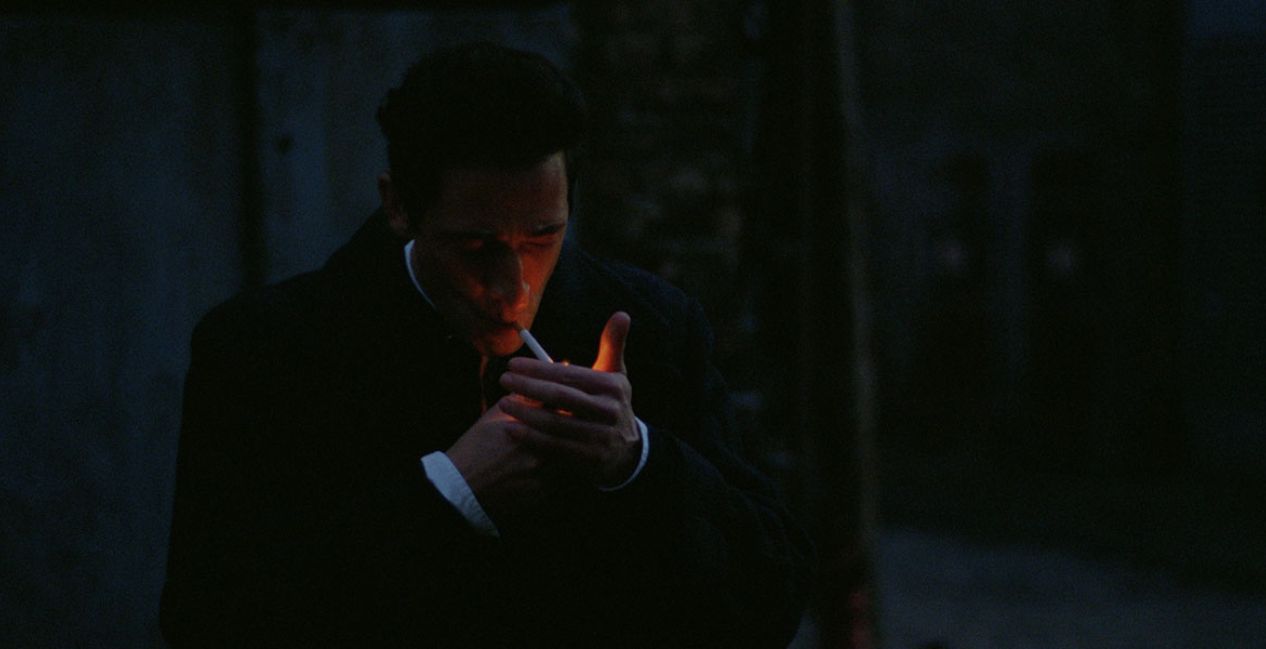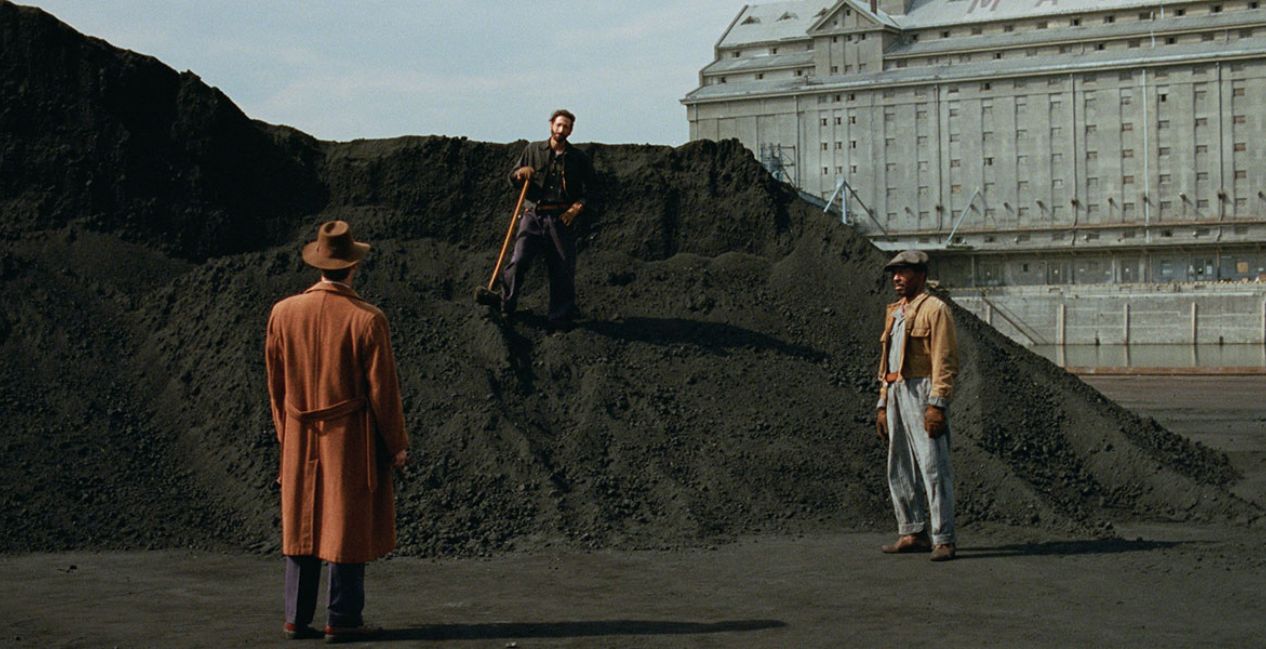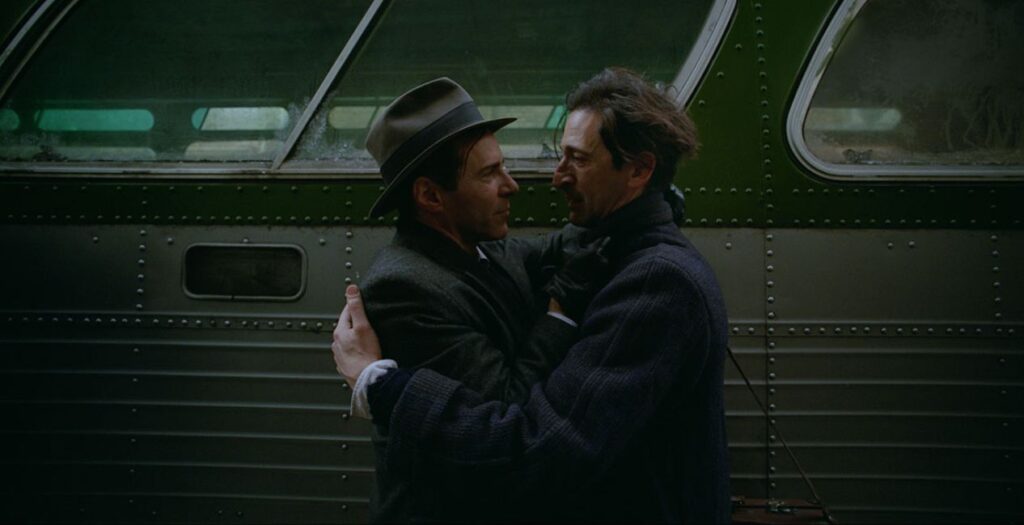Midway through the first act of The Brutalist, protagonist László Toth (Adrien Brody) is asked why he chose architecture as his trade. He replies: “Nothing is of its own explanation. Is there a better description of a cube than its own construction?” It’s a poignant, stimulating statement that encapsulates director Brady Corbet’s own meticulous and exacting vision.
The Brutalist is an American epic so individual in design and approach that it boldly juts out into the cinematic landscape like one of Toth’s intricate concrete towers, awing and inspiring from every angle. Like the architectural style it’s titled after, it’s a grand and intimate experience, both maximalist and minimalist. It seamlessly shifts between those extremes across a mammoth 216-minute runtime that never feels like it.
With The Brutalist, Corbet designs the American dream and then demolishes it. In burrowing into the frame with such grandeur and scope, Corbet illuminates the rotten foundation on which such American ideals are built and the self-annihilating sense of ambition that defines it.
Corbet’s chronicle is the first American film since One Eyes Jacks (1961) to be shot primarily with the 70mm VistaVision format, a precursor to modern-day Imax projection. It’s no coincidence the film stock feels as heavy as the concrete Toth fascinates and obsesses over.
Form, feel, and style pervades in a film whose very construction informs its weighty meditation on American mythmaking. It towers over audiences as an inscrutable behemoth, rich in metaphor and allegory but never overbearing. As the screen flickers away, we become one with its staggering ambition and rendered materials as part of its grand design.
The Brutalist’s weight is captured in how it was filmed.

In the story co-penned by Mona Fastvold, Toth arrives in America after World War II with little to his name, separated from his wife Erzsébet (Felicity Jones), who remains in a ravaged Budapest with his niece Zsófia (Raffey Cassidy). In a staggering opening sequence, Corbet takes us from the bowels of a ship to an inverted Statue of Liberty in a single unbroken take, plunging Toth into the thresher of American idealism with stark beauty.
In a sense, the core of Corbet’s film is revealed in these moments, flipping the famous call for “huddled masses” on its head and illuminating the envy, pride, and xenophobia that keeps privilege in the hands of a select few. The Brutalist proves itself to be as mesmeric and immersive as cinema can get, instilling in us the same hope of its immigrant hero, only to reveal it as a cruel illusion, frame by textured frame.
After departing Ellis Island, the Hungarian-Jewish architect settles in Philadelphia, visiting soup kitchens with his new friend Gordon (Isaach De Bankolé) and working at a furniture store owned by his cousin Attila (Alessandro Nivola). Toth’s life drastically turns after he runs into wealthy industrialist Harrison Lee Van Buren (Guy Pearce) during a surprise home renovation organized by his son Harry (Joe Alwyn). Impressed by his vision and penchant for intellectually stimulating discourse, Harrison recruits Toth for a colossal new project. It resurrects a dream he thought lost to war and time, but it soon consumes him, costing him everything to realize.
Told in two chapters, separated by a classical and stylish intermission, The Brutalist is firmly grounded in the past but thematically attuned to the present. Corbet’s immigrant story doubles as a film of ideas, pushing against the idea that objects should look and feel a specific way. Its very immortalization on a reel of obsolete celluloid is a testament to that sentiment.
Brutalism is a style defined by its divisiveness, both loved and hated; it echoes sentiments on immigrants like Toth, who, despite their efforts, often fail to overcome the weight of moving to the “new world.” Every facet of The Brutalist folds in on itself, manifesting as a rich parable that taps into every grade of human behavior— particularly the mindset of a privileged few who, under the pretext of art and culture, ruthlessly uphold capitalist hierarchies.
In A24’s The Brutalist, art upholds capitalism.

The mustachioed and sharply dressed Harrison is the spitting image of such realities. Pearce’s performance bursts with charm but never relinquishes the moral rot festering beneath it. He reveals himself to be a man interested only in his legacy, a cultural exclusionist who views artists as he does immigrants—cheap, replaceable, and obedient.
Pearce turns in his finest performance as a legitimized villain who thrives off a system that robs artists and “others” of their voices and identities. Alwyn’s Harry is a slimy extension of his father, who perpetuates the same ills in one way or another. The sins of the father not only go unpunished but are made sturdy building blocks of the illusory American Dream.
Brody, who is of Hungarian and Jewish descent himself, captures a visionary who finds inspiration but loses his soul. In a performance that recalls his Oscar-winning work in The Pianist, Brody lends varying shades of texture and tumult to a person corrupted by the new, promising world around him. Both raw in emotion and engrossing in approach, Brody’s titular brutalist builds an America that slowly pushes him out.
Jones’s Erzsébet proves to be his match. She captivates as a loving and caring spouse but isn’t blind to the moral detritus swallowing them. Erzsébet eyes the hidden architecture of abuse and exploitation before her Bauhaus-trained husband does.
Daniel Blumberg’s score defies categorization. Haunting at one moment and stirring the next, it’s full of kinetic, warped notes that glide through the frame and unearth the decay beneath it. It’s an auditory feat as epic, layered, and enveloping as the film it underpins.
Though the first half of Corbet’s film is better than the second, the two are crucial parts of a breathtaking whole. From the film it’s captured on to the depth of each frame, The Brutalist is perfection that breathes. Corbet cements what is already a seminal entry into the canon of great American epics.
The Brutalist was screened as part of the 2024 Toronto International Film Festival and is available now on VOD.
The Brutalist took home three Academy Awards for Best Actor In A Leading Role (Adrian Brody), Best Original Score (Daniel Blumberg), and Best Cinematography (Lol Crawley).
The Brutalist
-
Rating - 9.5/109.5/10
TL;DR
From the film it’s captured on to the depth of each frame, The Brutalist is perfection that breathes. Corbet cements what is already a seminal entry into the canon of great American epics.







